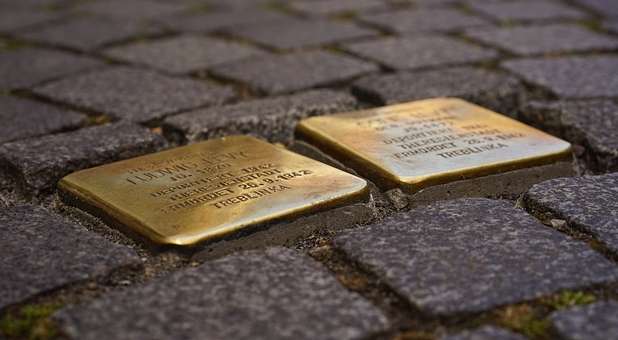
A few years ago, I wrote a book about churches that have died, Autopsy of a Deceased Church. The methodology was simple but revealing. I interviewed several church members representing several different churches that had died.
One of the surprising issues consistent in all the interviews was the contentious issue of memorials and plaques in the church. Indeed, one interviewee put it bluntly, "We became obsessed about the plaques in the church. We had more fights about them than anything else."
Wow.
And recently I watched the topic arise on Church Answers Central, our 24/7 question-and-answer forum. The impetus for the original post was a bequest of $10,000 left by a recently deceased church member. Some of the members in the church wanted to put a plaque on the wall in honor of her gift. The Church Answers' community advised against it.
Here are the negative issues we have heard associated with memorials and plaques in the church:
- They can take the focus off of giving God alone the glory. Of course, it doesn't have to be that way, but we heard from too many leaders who told us the memorials got more attention than God.
- They may be placed in places that are not permanent. You've heard the story. The church had pews for many years. Almost every pew had a plaque attached to it. Then the pews became old and worn, so the church decided to replace them with more efficient chairs. One church member told me his church lost about one-third of its members when the pews were replaced. The fight was brutal. The story can be even more intense when an entire building named for someone is replaced.
- They may hold the church hostage from moving forward. Churches begin making decisions based upon what's best for the plaques and memorials rather than what's best for the church. One woman we interviewed said her church business meetings were often consumed with discussions and arguments about memorials. The church eventually closed its doors.
- They may be tainted if the person has a significant character failure. "The stained-glass windows destroyed our church," the man told me in one of our interviews. Most of the windows had family or individual names attached to them. In this particular church, it was discovered that one of the names on the window was a serial sex abuser during his lifetime. "We fought over that issue until no one was left," he told us.
- They can become the basis for bad financial decisions. I was talking to a pastor who had been offered a six-figure donation to the church. But the donation came with two stipulations. First, the donor wanted a new fellowship hall named for his late father, whom no one knew. Second, the funds could only be used toward a new fellowship hall even though the church voted a year earlier not to proceed with the project. It just did not seem it was needed. This member was attempting to use his funds to reverse the decision.
- They are not understood by new members and guests. A few years ago, one of our "secret guests" used in a church consultation wrote these words about her experience in the worship service of the church: "There were plaques everywhere with names that meant nothing to me. I felt like I was in a museum rather than a sanctuary. It seemed like this church is living in the past."
- They are often mentioned in stories about the deaths of churches. As noted above, we first learned about the challenges of memorials and plaques in our interviews with members of deceased churches. In fact, the topic came up in all of our interviews. While correlation can't prove causation, there is little doubt memorials and plaques can become a major distraction for a church.
Ironically, just last week I spoke with a pastor whose church wanted to convert an infrequently used parlor to a much-needed space for its life groups. But the family whose patriarch made a major donation to the church building fund years ago blocked the move.
After all, the parlor was named for him. The plaque above the door let everyone know whose room it was. ![]()
Thom S. Rainer is the founder and CEO of Church Answers, and online community and resource for church leaders.
This article originally appeared at thomrainer.com.
Get Spirit-filled content delivered right to your inbox! Click here to subscribe to our newsletter.
Dr. Steve Greene is now sharing stories, teachings, and conversations with guests who lead with love on Love Leads, a new podcast. Listen now.
Dr. Mark Rutland's
National Institute of Christian Leadership (NICL)
The NICL is one of the top leadership training programs in the U.S. taught by Dr. Mark Rutland. If you're the type of leader that likes to have total control over every aspect of your ministry and your future success, the NICL is right for you!
FREE NICL MINI-COURSE - Enroll for 3-hours of training from Dr. Rutland's full leadership course. Experience the NICL and decide if this training is right for you and your team.
Do you feel stuck? Do you feel like you’re not growing? Do you need help from an expert in leadership? There is no other leadership training like the NICL. Gain the leadership skills and confidence you need to lead your church, business or ministry. Get ready to accomplish all of your God-given dreams. CLICK HERE for NICL training dates and details.The NICL Online is an option for any leader with time or schedule constraints. It's also for leaders who want to expedite their training to receive advanced standing for Master Level credit hours. Work through Dr. Rutland's full training from the comfort of your home or ministry at your pace. Learn more about NICL Online. Learn more about NICL Online.


